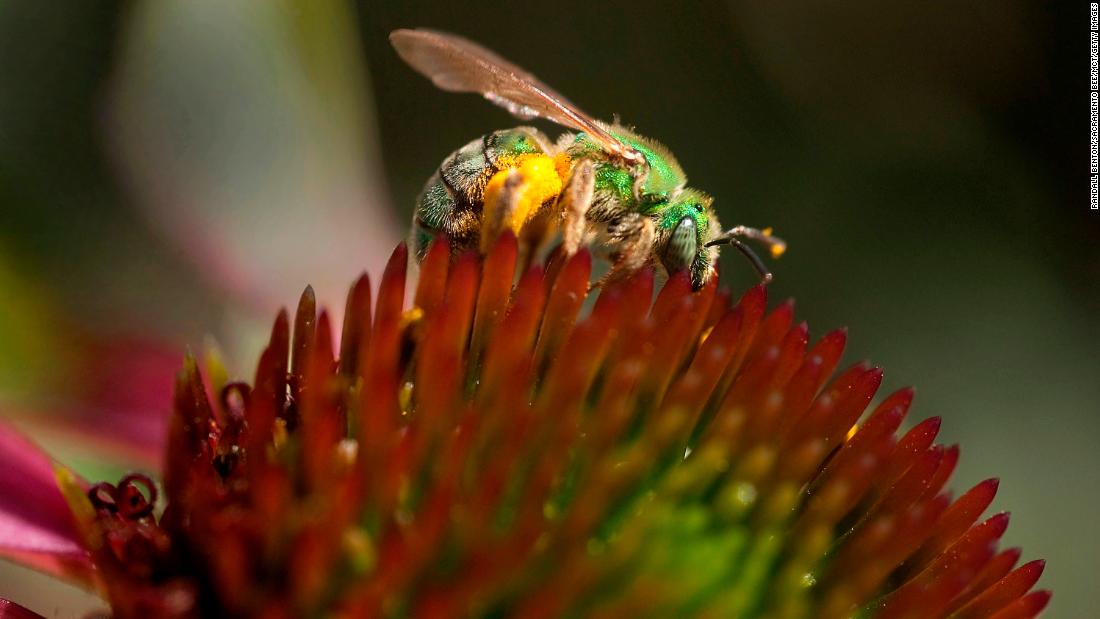
The miniscule insects, known as sweat bees, are 3 to 4 millimeters (0.12-0.16 inches) in length, according to CNN affiliate CTS.
"I saw something that looked like insect legs, so I pulled them out under a microscope slowly, and one at a time without damaging things inside," Hung Chi-ting, the head of the ophthalmology department at Taiwan's Fooyin University Hospital, told reporters at a news conference.
Sweat bees, also known as halictidae, "nest near graves and in fallen trees, so it's easy to come across them while hiking in mountains," Hung explained.
According to CTS, the woman, identified by her family name of He, said she thinks the insects blew into her eye at a relative's grave site when she visited it with her family. She washed her eyes with water but kept experiencing severe pain.
"It was very painful. Tears wouldn't stop coming out of my eye," she said. "I was scared to death."
After three hours of agony, He visited the hospital, where doctors determined she was suffering from cellulitis, a bacterial skin infection, and severe corneal erosion caused by the sweat bees.
"Thankfully she came to the hospital early, otherwise I might have had to take her eyeball out to save her life," Hung said.
He's eyesight had been reduced to under 0.1, the equivalent of 20-200 vision on the Snellen eye chart measuring visual acuity, Hung told reporters. "Luckily, she didn't have a high fever and it hadn't affected her central nervous system."
The sweat bee feeds off nectar and pollen, but is also drawn to human perspiration, which provides "precious moisture and salts," according to the Missouri Department of Conservation.
Local media reported that He was expected to make a full recovery.
No comments:
Post a Comment